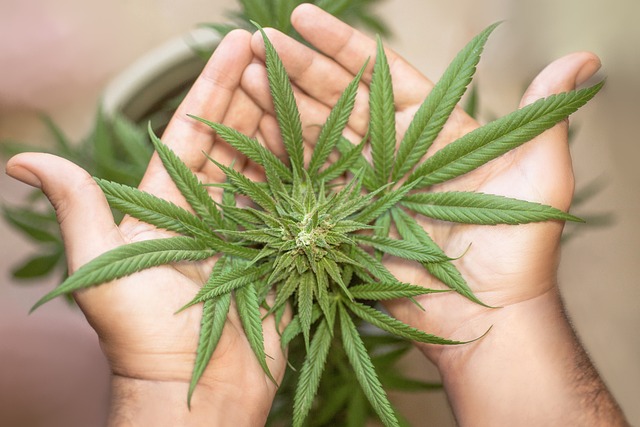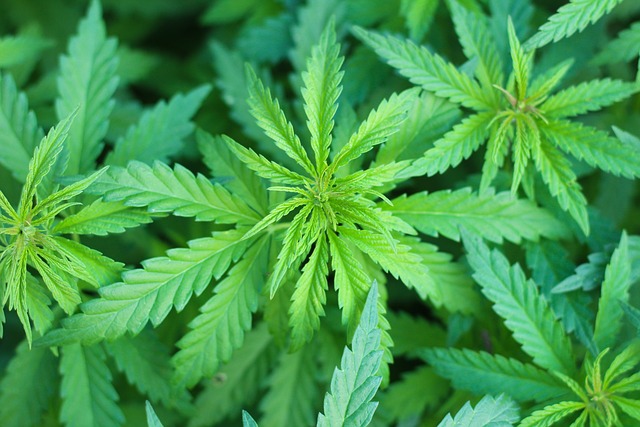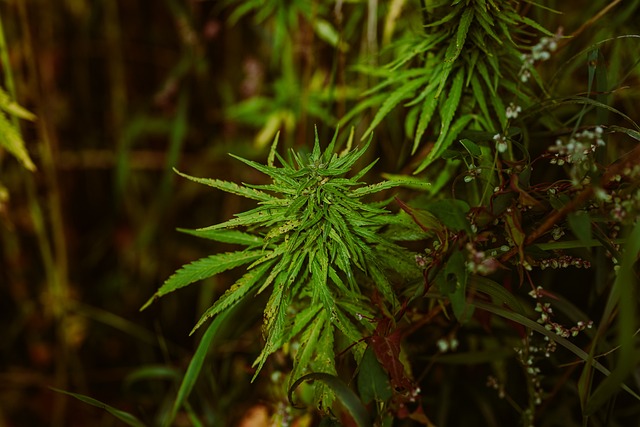In Rhode Island, THCA (Tetrahydrocannabinolic Acid), a non-psychoactive cannabinoid, is now recognized as legal for medical and adult recreational use under specific conditions, with a THC content cap of 0.3% on a dry weight basis. The Rhode Island Department of Health has clarified the use of THCA within their medical cannabis program guidelines. Qualified patients can legally possess and use THCA flower after receiving a physician's recommendation. It's crucial for individuals to stay informed about state regulations, which detail the types and concentrations of legal THC in products and acceptable forms of consumption. As THCA lacks psychoactive effects but may convert into THC under certain conditions, users should start with low doses and consult healthcare professionals, especially if they have pre-existing health issues or are taking other medications. The state's legislative landscape for cannabis is dynamic, so consumers must be vigilant about staying up to date with any changes. Those interested in the potential therapeutic benefits of THCA within Rhode Island should refer to official health resources and seek local legal counsel to ensure full compliance with all regulations.
Exploring the nuanced landscape of cannabinoids, this article sheds light on the burgeoning interest in THCA (Tetrahydrocannabinolic Acid) flowers, particularly within Rhode Island’s evolving legal framework. We delve into the legality of THCA flower in the state, offering a clear overview for discerning consumers. Beyond compliance, we examine the potential effects and side effects associated with its use, providing a balanced view of safety considerations and recommended dosage protocols. This comprehensive guide aims to empower individuals with accurate information to make informed decisions about THCA flowers’ consumption in Rhode Island.
- Navigating THCA Flower Legality in Rhode Island: A Comprehensive Overview
- Understanding the Potential Effects and Side Effects of THCA Flowers
- Safety, Dosage, and Best Practices When Consuming THCA Flowers in Rhode Island
Navigating THCA Flower Legality in Rhode Island: A Comprehensive Overview

In Rhode Island, the legal status of THCA flower, a non-psychoactive cannabinoid found in the Cannabis sativa plant that exists in raw or unfrosted cannabis, has been subject to evolving regulations. The Rhode Island Department of Health provides clear guidelines on the medical use of cannabis, including its derivatives and products. THCA, often present in high-CBD strains, is not psychoactive like its counterpart THC (tetrahydrocannabinol), but it may offer potential therapeutic benefits. As of recent updates, possession and use of THCA flower are legal under the state’s medical cannabis program for qualified patients with a physician’s recommendation. However, Rhode Island’s laws are intricate, with distinctions between allowable concentrations of THC in products and the specific forms in which cannabis can be consumed or possessed. Therefore, it is crucial for individuals to stay informed about the latest legal developments, as compliance with state law is essential for avoiding any potential legal complications. For those interested in the therapeutic properties of THCA and its legality within Rhode Island’s medical cannabis program, consulting the state’s official health resources and local legal advice is recommended to ensure adherence to all regulations.
Understanding the Potential Effects and Side Effects of THCA Flowers

THCA, or tetrahydrocannabinolic acid, is a non-psychoactive cannabinoid found in the flowers of cannabis plants. As states across the country continue to legalize various forms of cannabis, understanding the potential effects and side effects of THCA flowers becomes increasingly important for consumers. In Rhode Island, where THCA is legal, consumers should be aware that while THCA itself does not produce psychoactive effects like its derivative THC, it may have various health benefits and could potentially influence well-being. Research suggests that THCA interacts with the body’s endocannabinoid system and may offer therapeutic properties, including anti-inflammatory, anti-nausea, and neuroprotective effects. However, as with any substance, it is crucial to approach THCA flowers with caution. Side effects can vary based on individual sensitivity, dosage, and the specific strain of cannabis. Common side effects may include mild psychoactive effects when THCA is decarboxylated into THC, drowsiness, dry mouth, or red eyes. Consumers in Rhode Island should always start with low doses to gauge their reaction and consult with a healthcare professional before incorporating THCA flowers into their wellness regimen, especially if they have pre-existing health conditions or are taking other medications. Understanding the intricacies of THCA’s legal status and its potential effects within the context of Rhode Island’s regulations is key for both new and experienced users to ensure a safe and beneficial experience.
Safety, Dosage, and Best Practices When Consuming THCA Flowers in Rhode Island

THCA, or Tetrahydrocannabinolic acid, is a non-psychoactive cannabinoid found in the cannabis plant that is believed to have potential therapeutic benefits. As of current regulations, THCA flowers are legal in Rhode Island under state law for both medical and adult-use recreational purposes, provided they contain less than 0.3% THC on a dry weight basis and comply with other state regulations. Consumers interested in the potential wellness effects of THCA should approach its consumption with caution, adhering to recommended dosage guidelines to ensure safety and efficacy.
Dosage for THCA flowers is highly individualized and can vary significantly from person to person. It is advisable to start with a low dose, typically ranging from 1 mg to 5 mg, and assess the effects before increasing the dose gradually. Best practices when consuming THCA flowers include using high-quality, lab-tested products from reputable sources to ensure purity and safety. Additionally, consumers should be aware of their body’s response to THCA and avoid driving or operating heavy machinery until they understand how the compound affects them. Rhode Island’s legal framework for THCA consumption is clear, but it is always recommended to stay informed about any updates to state and federal laws regarding cannabis products.
When exploring the landscape of THCA flower consumption in Rhode Island, it’s crucial to grasp the legal status and potential effects. As outlined in this article, THCA flower is legally permissible within state lines, provided one adheres to the established regulations. It’s imperative for users to understand the nuances of its impact on health and well-being, as THCA, the non-psychoactive precursor to THC, offers a range of effects, from therapeutic benefits to mild side effects. Safety precautions, appropriate dosing, and informed best practices are vital to mitigate any adverse reactions. In conclusion, the exploration of THCA flower’s legality in Rhode Island, alongside its potential effects, underscores the importance of responsible use within the confines of the law, ensuring a safe experience for all interested parties.
